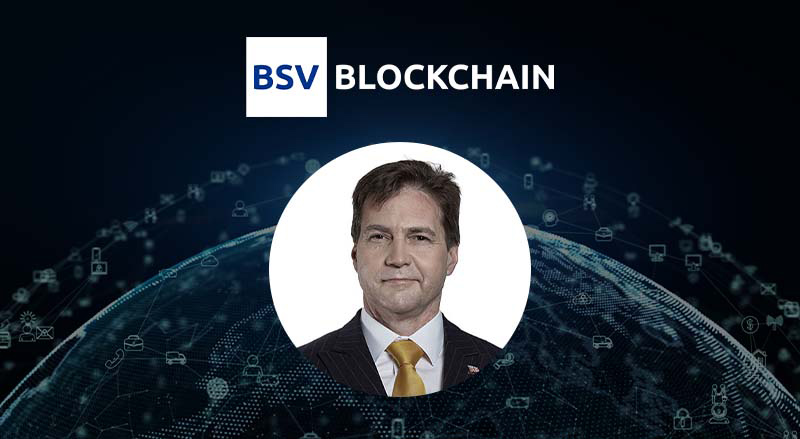At the recent IEEE Summit in Rabat, Morocco on May 12, Dr Craig S Wright, the creator of the Bitcoin protocol, spoke about Bitcoin Satoshi Vision and the Internet of Things, illustrating the intersection between his peer-to-peer protocol and IPv6.
The event focussed on the topic of IEEE 5G, IoT & Blockchain, with industry executives, government representatives and industry experts coming together to discuss the shortcomings of communication networks in a 5G-IoT world.
Dr Wright distanced Bitcoin from cryptocurrencies from the get go, highlighting Bitcoin’s uniqueness as the first traceable (private, not anonymous) system of digital money. He added that his first release of Bitcoin was based on IPv6, including IP to IP transactions.
Given the BSV blockchain’s faithfulness to the original Bitcoin protocol, Dr Wright nominates it as the only blockchain that can scale sufficiently to serve as infrastructure for IPv6. This new blockchain-based model of Internet commerce will be one where records are immutable, cannot be lost, and allows parties to trade securely and privately.
We caught up with Dr Wright to dig a bit deeper into the potential of blockchain and IPv6.
The state of blockchain development
When asked about the state of blockchain development, Dr Wright draws a parallel with the early commercial phases of the Internet in the mid to late nineties. ‘I keep pointing out there was a company called DogFood.com that really had no business. Yet they signed up a lot of people, shareholders, and all sorts of things for a tokenised economy.’ Though the company was bigger than Amazon, it has ceased to exist due to its lack of a business model.
Dr Wright predicts that the blockchain cycle will inevitably pass through the same phase to purge the industry of people founding hype projects that make money without doing any real work.
As the Internet didn’t die off when the dot-com bubble burst turned its focus to valuable business models, Dr Wright posits a similar trajectory for blockchain. ‘The people that we’re talking with here (at the IEEEE 5G Summit), the professors, the people building on the IEEE projects, they’re not looking at just getting rich. They’re building something over time that matters, something that makes a change through innovation, that enables people to trade, interact and do things they couldn’t do before.’
Wright envisions a future where blockchain technology combined with IPv6 connects people across the world, even those in small villages in the middle of nowhere, to each other and creates economic opportunities.
A peer-to-peer protocol for the digital economy
Connecting the blockchain technology and IPv6, Wright points out that the blockchain archetype, Bitcoin was designed to be a peer-to-peer system allowing direct communication between parties, including machines. It’s not only its peer-to-peer communications model that perfectly lends itself to IoT applications and the IPv6, but its micropayment functionality.
The existence of the unused Internet error code, HTTP 402 Payment Required, attests that the Internet was originally designed for the day when someone discovered how to create a proper micropayments system. And yet, it’s only now, with the BSV blockchain’s peer-to-peer, micropayments system and IPv6 that we’re able to build that into the foundations of the Internet – to integrate individual tokens and payment options that will instantly allow you to access online content. How will this new Internet be? ‘The direct ability to communicate between individuals will allow you to have that level of exchange (peer-to-peer) and trustworthy monetary interactions without having to pay providers or gateways. You’d be able to say this IP address cryptographically assigned to this user relates to this transaction.’
Blockchain-based IPv6 for financial inclusion
Wright proposes that the complexity of such a system can be very low so that anyone can do it without having to worry. The micropayment facility would also break through the high entry level for data communications, as you’d be able to pay for Internet access per kilobyte. ‘We could remain on a system where only the few people who are middle class and wealthy have access (to peer-to-peer communications and eCommerce) because they have access to use credit cards and banks. Or we could open up something that is simple that will allow anyone anywhere in the world to interact and jump on the network for fractions of a cent when they can afford it.’
Building a sustainable eCommerce industry
Wright would love to see more people build and create applications, not so they can gamble or speculate on price, but by actually building something that earns money. ‘If every transaction earns you $0.01, and you’ve built an application that can process millions of transactions every day, you’re still going to make a lot of money and you’re not going to care that the price goes up or down. You’re going to care how much you make per transaction. And if you can do that, then you build a sustainable industry.’
Attend a BSV blockchain event near you
The Association for the BSV blockchain is the global industry organisation that supports the BSV blockchain. You can read our recap of the Global IEEE 5G-IoT Blockchain Summit in Rabat, and head over to our events page to see similar events in your geographic location.
